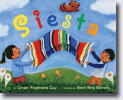Why offer recommendations of toys, books and kid gear? For some, this question may never occur; this is a blog, and the blogger can do whatever s/he wants with it.
As a Christian, I think it is a valid question. Why recommend things that can't satisfy? If our hearts naturally incline to be satisfied with anything but God, then why add my recommendation to things that I know will not satisfy?
First, why recommend things that can't satisfy?
I am indebted to C.S. Lewis for the answer.
But the most obvious fact about praise-whether of God or any thing-strangely escaped me. I thought of it in terms of compliment, approval, or the giving of honor. I had never noticed that all enjoyment spontaneously overflows into praise unless (sometimes even if) shyness or the fear of boring others is deliberately brought in to check it. The world rings with praise-lovers praising their mistresses, readers their favorite poet, walkers praising the countryside, players praising their favorite game-praise of weather, wines, dishes, actors, motors, horses, colleges, countries, historical personages, children, flowers, mountains, rare stamps, rare beetles, even sometimes politicians or scholars. I had not noticed how the humblest, and at the same time most balanced and capacious, minds, praised most, while the cranks, misfits and malcontents praised least.…
I had not noticed either that just as men spontaneously praise whatever they value, so they spontaneously urge us to join them in praising it: "Isn't she lovely? Wasn't it glorious? Don't you think that magnificent?"
Lewis' point is that praise is inherent to our nature. The question is not whether we do it, but of what we do it. We praise those things that we esteem, that we consider worthy of praise, worthy of being admired and trusted by others. For this reason, I don't hesitate to recommend toys, books and gear that are durable, well-made, clever, etc. Just as Lewis says, I spontaneously praise what I value. If
things were all that I praised, or what I praised most highly, then I would be in great danger of leading others to trust and delight in things
beyond the measure that they are worthy to be trusted and enjoyed. Which leads me to answer the second question.
If our hearts naturally incline to be satisfied with anything but God, then why add my recommendation to things that I know will not satisfy? Again, I rely on Lewis:
The Psalmists in telling everyone to praise God are doing what all men do when they speak of what they care about. My whole, more general, difficulty about the praise of God depended on my absurdly denying to us, as regards the supremely Valuable, what we delight to do, what indeed we can't help doing, about everything else we value.
I think we delight to praise what we enjoy because the praise not merely expresses but completes the enjoyment; it is its appointed consummation. (C. S. Lewis, Reflections on the Psalms. New York: Harcourt, Brace and World, 1958, pp. 93-95) [I found this selection online here.]
I am not going to deny myself or others "what we delight to do, what indeed we can't help doing" by saying, "I will only praise God." Rather, I need to be clear that those things that I commend while surpassing their peers, and bringing me pleasure, are nothing next to the supreme worthiness of God in Christ. This is why Jesus' words, "Whoever does not renounce everything he has cannot be my disciple," are not burdensome. It is like trading a Kia for a Porsche. Only the idiot is going to cast a second glance at the Kia. Praise can be appropriate of both Kia and a Porsche, but there is no comparison between the two.
Given the reality that Christ is more worthy to be trusted and admired than anything, there are two other respects in which recommending things can be helpful, I think:
- Value is upheld. God is not honored by those who sell a junky product or service, nor by those who consider junk to be of good quality. Giving our business to those who deserve it strengthens those companies that truly provide value - and nudges inferior companies to improve, or go out of business.
- Things can lift our eyes to Christ. I think that this is most clear with music and literature. They can be a vehicle to help us see Christ more clearly and love Him more.
As human beings, we will praise. The question, I think, is whether our praise is in proportion to the worthiness of the object.































